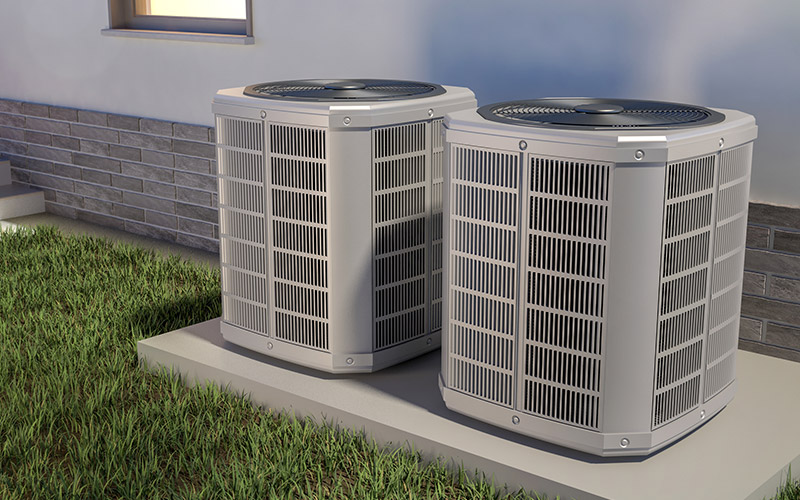Replacing a cooling system is a major ordeal. It’s good to know your options before the fact. For most Shelbyville homeowners, the choice is between heat pumps and air conditioners. Let’s take a look at how these HVAC systems differ:
1. Energy Efficiency
Heat pumps provide heating and cooling in one unit. When it’s warm, heat pumps cool your home exactly as air conditioners do. The SEER rating of the unit determines its efficiency. In winter, heat pumps are considerably more efficient than furnaces. They draw warmth from outdoor air and use it to heat your home. Furnaces burn expensive fossil fuels to heat your home. Unlike fossil fuels, warmth in the air is a free energy source. Even the most efficient furnaces cost more to operate than heat pumps.
2. Cooling Effectiveness
Heat pumps boast variable speed blower motors and two-stage compressors. These units can maintain comfortable indoor conditions by operating at a reduced capacity for a longer time. They make tiny temperature and airflow adjustments to generate even and cost-effective cooling. Longer running time also increases humidity control. Air conditioners are either running at full throttle or not running at all. That can cause inconsistent temperatures and hot or cold spots throughout your home.
3. Zoned Systems
Mini-split systems are heat pumps that don’t need ductwork. Multiple indoor units receive cool air via tubing from one outdoor unit. Each indoor unit controls conditions in a different room or zone. You can cool only the rooms you use, so you’ll have lower utility bills. Because no ductwork is involved, you won’t lose up to 30 percent of heated and cooled air through ductwork leaks.
McKamey Heating and Cooling can help you decide between an air conditioner installation or a heat pump installation. Call us today to learn about our air conditioning services.


